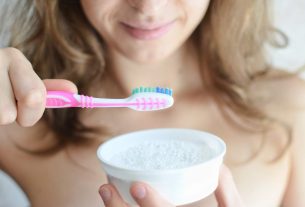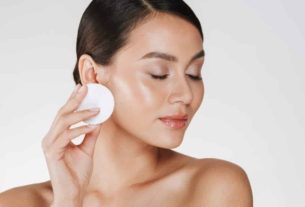Consuming skin vitamins such as A, B2, B3, B5, B6, B7, C, D and E bring benefits to the body literally from the inside out.
The saying that beauty comes from the inside out makes more sense than you might think. In other words, taking care of our body brings visible benefits, such as consuming skin vitamins, which hydrate and nourish our body literally from the inside out.
Knowing what these vitamins are is essential for skin care, as creams and skincare alone may not do the job. The consumption of these micronutrients greatly impacts the skin, and the lack of them causes visible disorders, such as increased wrinkles, expression lines, acne and very dry or very oily appearance.
The vitamins responsible for helping with skin care are: A, B2, B3, B5, B6, B7, C, D and E. Among their main benefits, anti-inflammatory actions, collagen production, hydration, nutrition and much more.
In this post, you will learn about:
- Vitamin A
- B2
- Vitamin B3
- B5
- B6
- Biotin B7
- Vitamin C
- Vitamin D
- E
Skin vitamins worth knowing
1. Vitamin A
Also called Retinol, vitamin A is important for the skin formation process and its maintenance so that it remains healthy. Its main benefit is its rejuvenating effect, as it acts on cell renewal, acting against sagging skin. In this way, it helps to unclog pores, thus preventing blackheads and combating oiliness.
Vitamin A is found in foods of plant and animal origin. You can source these micronutrients by consuming liver, fish, eggs, spinach, papaya, mango, red guava, pumpkin, kale, spinach, cashew, carrots, strawberry, kale, among others.
2. Vitamin B2
An important cell renewer, vitamin B2 cannot be missing from your daily life, as a lack of it is one of the reasons for dry skin, in addition to helping with the appearance of dermatitis and inflammation. This happens because it is one of those responsible for helping with blood circulation, which brings oxygen to your skin.
As a result of its use, it helps to have hydrated and firmer skin, thus combating the signs of aging. The biggest sources of vitamin B2 are dairy products, such as milk, cheese and yogurt.
3. Vitamin B3
Vitamin B3 is an important ally for the skin, fighting blackheads and pimples. In this way, it balances the sebum production of oily skin and increases the production of ceramides, ensuring hydration for dry skin. Finally, it also facilitates blood circulation throughout the body. The main sources of this micronutrient are eggs and grains.
4. Vitamin B5
Very important for preventing acne, vitamin B5 is rich in anti-inflammatory properties. In other words, it stimulates the skin’s natural regeneration process. This way, it also helps to eliminate blemishes caused by acne. Another great benefit is its deep hydration power, which makes the skin absorb moisture quickly.
Among the foods that contain vitamin B5 are grains, seeds and legumes, such as sunflower seeds, wheat bran, cooked soybeans, walnuts, peanuts, cashews, black beans, lentils, peas and chickpeas.
5. Vitamin B6
Like vitamin B5, vitamin B6 also stimulates the skin regeneration process through cell renewal. Furthermore, it has a healing effect and acts on the body’s immune system. Finally, it is possible to find the nutrient in foods such as potatoes, bananas, chicken breast, sunflower seeds, salmon, tuna and avocado.
6. Biotin B7
Peanuts, hazelnuts, almonds, cashews, wheat bran, oat bran, boiled eggs and walnuts. These foods have one nutrient in common: biotin, better known as B7, which is part of the B complex vitamins. Therefore, this nutrient helps the health of hair, nails and skin. It acts as a coenzyme in energy metabolism, in other words, it is important for several reactions in the body.
7. Vitamin C
Vitamin C is a powerful antioxidant that has the power to reverse the signs of skin aging, reducing wrinkles and expression lines, restoring radiance and improving firmness. Furthermore, it helps lighten skin blemishes and stimulates collagen production.
Among the main sources of vitamin C are broccoli, kale, yellow peppers, cashews, guava, papaya, mango, acerola, kiwi, orange, lemon, strawberry, pineapple, parsley and tangerine.
8. Vitamin D
Vitamin D, also known as calciferol, is one of the most important for the human body. Its main production process is through solar rays. As UV rays come into contact with the skin, they transform cholesterol into vitamin D. Among its benefits, the most notable are the regeneration of the dermis and epidermis, the stimulation of healing and tissue repair. Furthermore, it has the power to accelerate the recovery of the skin barrier.
9. Vitamin E
Also known as tocopherol, vitamin E is a fat-soluble micronutrient, an antioxidant that helps prevent damage caused by free radicals, delaying aging, preventing skin cancer, diabetes and balancing cholesterol levels. Furthermore, it helps with muscle function, liver metabolism and strengthening the body’s immune system.
It is possible, above all, to find vitamin E in foods. Good sources are sunflower seeds, peanuts, almonds and walnuts, corn and soybean oils, wheat germ, olive oil, green leafy vegetables, liver, egg yolks.
Sources: Lancome, My Ocean Drop, Minha Vida, Uol, Uol.

Sign up for our newsletter and stay up to date with exclusive news
that can transform your routine!
Warning: Undefined array key "title" in /home/storelat/public_html/wp-content/plugins/link-whisper-premium/templates/frontend/related-posts.php on line 12
Warning: Undefined array key "title_tag" in /home/storelat/public_html/wp-content/plugins/link-whisper-premium/templates/frontend/related-posts.php on line 13




